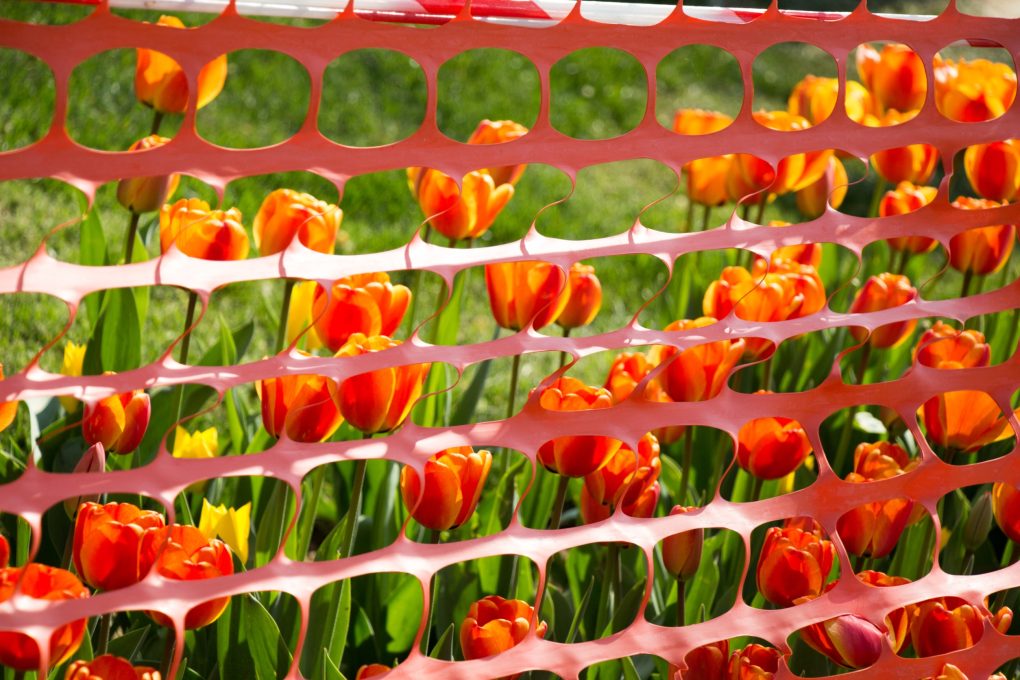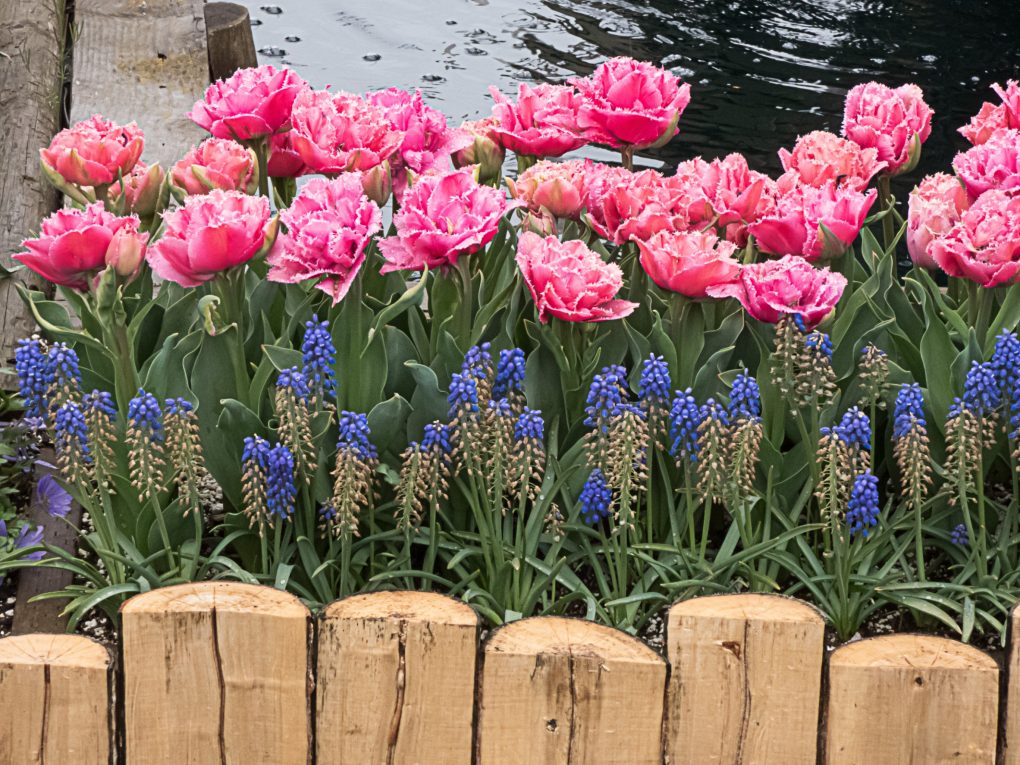How To Protect Tulip Bulbs From Squirrels | 16 Simple and Effective To Prevent Critters from Digging Your Bulbs
Have you ever wondered why squirrels dig up tulip bulbs? While digging up tulips may seem delicate to some, it provides a significant benefit to the critters – protection from predators. Yes, squirrels eat tulips for the same reason your gardeners use tulips in the first place – they’re beautiful. They attract birds who will feed on them and deter pests like rabbits and deer that would otherwise eat tulips. Squirrels dig up tulip bulbs to get at any tasty treats that might have been buried under the soil (such as seeds or bulbs left behind). Some gardeners make the mistake of planting bulbs in the same area year after year without doing anything to deter digging by squirrels. When squirrels dig up tulips, they also dig up all of your hard work! So what can you do to keep the squirrels away from tulips? You can read all about it in this blog post!
Table of Contents
16 Ways To Keep Squirrels From Digging Up Bulbs

Make Digging Up Bulbs by Squirrels Difficult
To keep squirrels from digging up bulbs, one way to ensure they remain safely buried is by making it hard for them to access their bulbs. One common way to do this is by installing a wire fence around the tulip bulb area. This can help protect the bulbs from being dug up. Alternatively, you can use a guard rail to protect the bulbs from being dug up. Another solution is to use mulch or a planting bed over the tulip bulbs to make it more difficult for squirrels to reach them. Using these methods and taking other steps to protect your tulip bulbs, you can enjoy the beauty of these plants year after year without allowing pests like squirrels to destroy them.
Use Bulb Cages
You can use bulb cages to keep squirrels away from tulip bulbs. These cages are covered with wire mesh typically positioned around the bulbs. The mesh allows air circulation, prevents the bulbs from being damaged, and keeps squirrels out. Alternatively, you can use a scarecrow to prevent squirrels from digging up tulips. This scarecrow is usually made of cloth and features a face painted to look like a human or animal. It is placed in the garden or near the tulips to frighten off squirrels that may dig up the bulbs for food or shelter. Using these effective deterrents, you can ensure that your tulips remain healthy and flower all season long!
Bulbs Baskets Prevent Squirrels From Eating Bulbs
To protect tulips from being dug up by squirrels, you can place bulbs in baskets around the base of the bulbs. These baskets are made of wire mesh high enough to prevent the squirrels from reaching the tulips but low enough so they cannot climb over them.
The baskets can be purchased in various sizes and colors to fit the needs of any garden. They are effective at protecting tulips from digging up by squirrels, so you can use them to protect your bulbs from pests. Whether planting tulips for the first time or planting bulbs for a year-round planting, baskets are essential for protecting your bulbs from pests and prolonging their lifespan.
Cover the Planting Area With a Barrier To Prevent Digging
Covering the planting area with a barrier to prevent digging can protect tulip bulbs. The barrier must be tall enough to keep squirrels out but low enough so the bulbs remain visible. Multiple barriers around the planting area can ensure complete protection. This can include covering the planting area with chicken wire, planting mulch around the bulbs, or planting different bulbs nearby.
While covering the planting area with a barrier is one effective way of protecting tulip bulbs from pests and decay, it is not always possible or practical. Always follow all planting instructions carefully and take all necessary precautions to ensure their safety and longevity.
Delay Planting of Bulbs
As the bulbs bloom, it’s essential to help protect them from digging by squirrels. One way of doing this is planting tulips later in the season. Planting tulips late in the spring or planting them early in the fall can help to keep squirrels away. Also, planting tulips at a distance of 60 feet or more from other bulbs will help minimize the chance of squirrels digging them up. In addition to planting tulips, it’s also a good idea to keep all bulbs covered at all times to prevent them from being dug up by squirrels. By taking these simple steps, you can help ensure that your tulips bloom for years to come.
Install a Tall Fence
A tall wire fence is an excellent deterrent for squirrels. It offers a barrier between the tulips and the critters, which will help keep them safe from harm.
Another option is to set up scarecrows in your yard. These brightly-colored effigies can serve as a visual deterrent for squirrels, making them think the area is unsafe.
One way to help tulips stay healthy and vibrant is to keep your yard well-groomed. This includes planting bulbs in a sunny area with ample nutrients and soil, mulching around the bulbs to protect them from the elements, and trimming around the bulbs’ stems to keep them clean and hydrated.

If you must have tulips in your garden, consider installing motion-sensing lights to help them bloom all year long.
Plant Deeply and Clean Up
For tulip bulbs to remain healthy and undamaged, it’s vital to keep squirrels out of the area. It’s also essential to clean up feeding sources such as bird feeders and other food sources regularly to prevent squirrels from raiding their bulbs. Planting the bulbs deeper than 18 inches will deter the squirrels from digging them up, which is essential for them to remain healthy and undamaged.
In addition to keeping your bulbs well-watered, it’s also imperative to keep them protected by wrapping them in aluminum foil or securing them with wire mesh. This will help ensure that the animals do not damage or chew the bulbs. If you find yourself facing a situation where squirrels target tulips, you should take immediate action to prevent damage and save the bulbs.
Apply Mulch Properly
To protect tulip bulbs from squirrels, you can mulch the area around them with compost or soil. This will help to keep the bulbs clean and prevent them from being damaged by the sharp edges of mulch. You can also install wire cages around your bulbs to keep squirrels away.
Alternatively, you can make a “squirrel-proof garden” by installing barriers and fencing. This will help ensure that squirrels don’t have access to the bulbs, making it harder for them to damage or eat them. You can also remove any accessible sources of food near the bulbs, such as bird feeders.
You should monitor your bulbs closely and act quickly if you notice squirrels damaging or eating tulips. Doing this can protect your tulips from pests and keep your garden looking vibrant and beautiful all year round.
Protect Tulip Bulbs in Pots
To protect tulip bulbs from squirrels, installing a wire mesh or metal cage around the bulb pot is vital. This will prevent the squirrel from digging into the bulb and accessing the bulbs, which can lead to injury and death.
You can also place the tulips in a sheltered location, away from tall grass and bushes. Additionally, you should keep your tulips well-watered but not drenched and use deterrents such as bird feeders or a noisy toy to scare away squirrels.
Additionally, you can remove any fallen flowers or leaves from around the tulip bulb pot, which will help prevent the area from becoming scented. Lastly, you must monitor the tulips regularly for signs of squirrel activity, regardless of the method used to prevent them.
Plant Bulbs That Squirrels Don’t Prefer
It’sProtecting tulips from squirrel damage are vital, and one way to do that is by planting bulbs in areas away from the garden or plant bed. You can also feed tulips an alternative diet that the squirrels don’t prefer. Some good options include dandelions, chicory, and elderberry. These plants have high nutritional value for the bulbs and can help ensure their survival. It’s about ensuring your bulbs get the nutrients they need to grow strong and survive the winter.
Use Natural Repellents
To keep squirrels away from tulip bulbs:
- Offer an alternative diet that includes bird feeders, fruits, and vegetables.
- Use natural repellents such as peppermint oil or cedar chips to deter pests.
- Cover the bulbs with cages or hardware cloth to prevent the squirrels from digging up the bulbs.
- Ensure the planting area is fenced off to stop the squirrels from digging for bulbs in the first place. You can protect your bulbs from being damaged or destroyed by offering an alternative diet and using natural repellent methods.
Add Sharp Gravel
If you’re worried about squirrels digging up tulips from your garden, offering them an alternative diet may help. You can feed them raw nuts or offer them bird feeders to dangle treats from. But all these strategies will only work if you have a different food available for the squirrels to eat other than tulips. Add sharp gravel to your garden to help deter squirrels from digging up tulips. This will make digging up tulips more friction and difficult for the critters. Also, be persistent in your efforts to protect your tulip bulbs.
If all else fails and squirrels still dig up your tulips, you can always be baited with a wire cage or live trap, capturing the animals and returning them to their natural habitat. But don’t forget to feed the captured squirrels and replace the tulips in your garden as soon as possible.
Plant Your Bulbs Among Other Plants

Tulip bulbs are especially vulnerable to damage from squirrels. They can eat the bulbs or chew the flowers off of the bulbs. Planting tulip bulbs, among other plants, can help protect them from pests like squirrels and other garden predators. If you live in an area where tulips are standard, planting them in a location that is hard for squirrels to access can help keep them safe. Alternatively, you can buy a tulip bulb protector to keep your bulbs safe. These protective covers can be placed over the top of the bulb to prevent it from being eaten by critters.
Cover Your Bulbs
If your bulbs are being raided by squirrels, covering the bulbs with wire mesh or plastic can deter the critters from digging up the bulbs. Additionally, you can deter the squirrels by ringing the bulbs with a bell or scaring them with a noise maker. Another option is to provide an alternative diet for the squirrels, such as feed storage bags filled with dry dog food or cat food. By providing an alternative feed source for the squirrels, you can reduce their interest in digging up your tulips and ensure they stay healthy and thrive all year.
Provide Alternate Food Sources
Squirrels can threaten tulips, chew on the bulbs or strip them of their petals. In addition, the squirrels may also damage the tulips by digging up the bulbs. To protect tulips from squirrels, provide them with an alternate food source, such as bird feeders or small amounts of food hidden in strategic places around the planting area.
While squirrels are typically curious and will not attack tulips if they have access to other food sources, it is still essential to take steps to prevent them from damaging the bulbs. Providing an alternative food source for the squirrels can help protect your tulips from damage and ensure they continue to thrive in your garden.
Clean Up Your Planting Areas
Tulips are susceptible to damage from squirrels, which can cause the bulbs to rot. To protect tulips from squirrel damage, regularly clean up your planting areas and place deterrents such as bird feeders or scarecrows in strategic locations. Additionally, offer an alternative diet such as bird seed or fruit so that squirrels do not depend solely on the tulips for food. By taking these simple steps, you can ensure that your tulips remain healthy and vibrant all season long.
